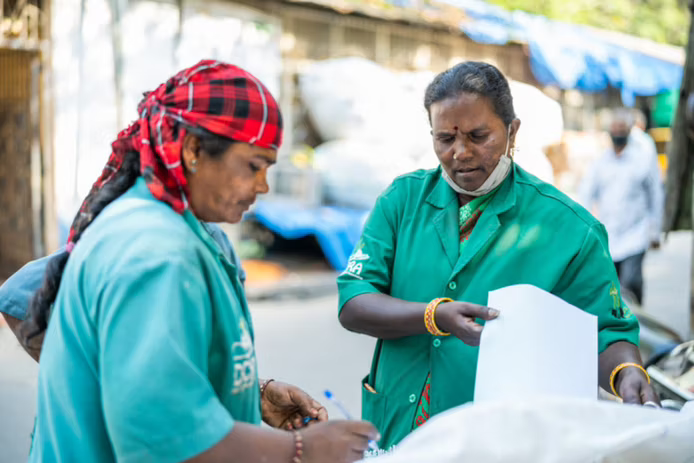Recycled plastic collected by Indian waste pickers turned into 152 million buttons
14 February, 2023

Around 62 million tonnes of waste are generated annually in India, of which only 19 percent is treated. The rest ends up in landfills but that is not where it remains - enter about 1.5 to 4 million informal waste pickers who are the largest driving force behind recycling in India.
Often barefoot, uneducated and shunned by society, they climb huge mountains of a municipality's garbage to take out what can be turned into cash - glass, metal and all kinds of plastic. Driven by poverty, they are crucial to India’s waste management system and key players in the circular economy, yet they live in poverty, under-appreciated and with little access to social support services.
In 2020, the H&M Foundation launched a first-of-its-kind, 11-million-US-dollar initiative, Saamuhika Shakti (“Collective Power”), to address the gaps in this system: It unites ten local experts and NGOs across sectors in Bengaluru, India, aiming to turn plastic waste into a valuable resource and to equip waste pickers to lift themselves out of poverty.
The post-consumer PET waste collected by them is sold to social enterprise Hasiru Dala Innovations and then flaked, washed and provided to button suppliers. So far, it has resulted in 152 million buttons on garments sold worldwide and is already impacting 32,000 people in the community in various aspects like education, health and safety.
“The buttons are traceable down to the source of the waste along with names of the workers, social security, salaries and working conditions at the aggregation centre,” according to the H&M Foundation in a press release.
“If we collaborate holistically towards inclusive circularity, we can catalyse solutions that allow both people and planet to thrive. By addressing challenges related to waste pickers' lives, they have the potential to lift themselves out of poverty as well as contribute to a global circular system,” comments Maria Bystedt, strategy lead at the H&M Foundation
